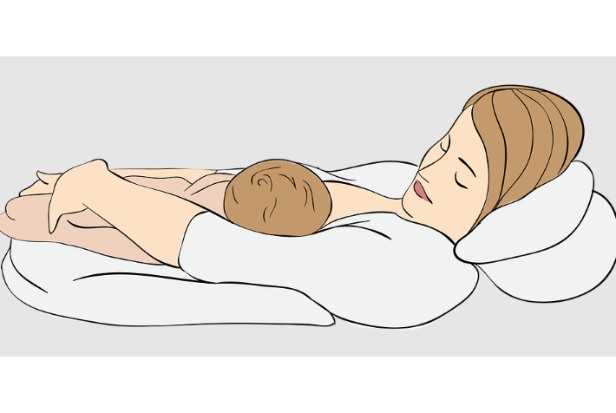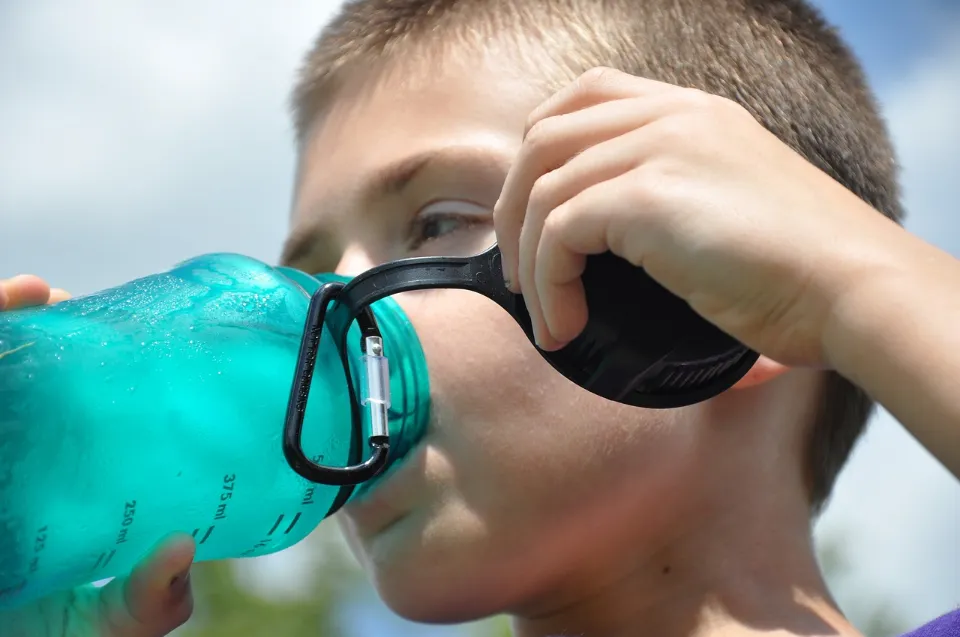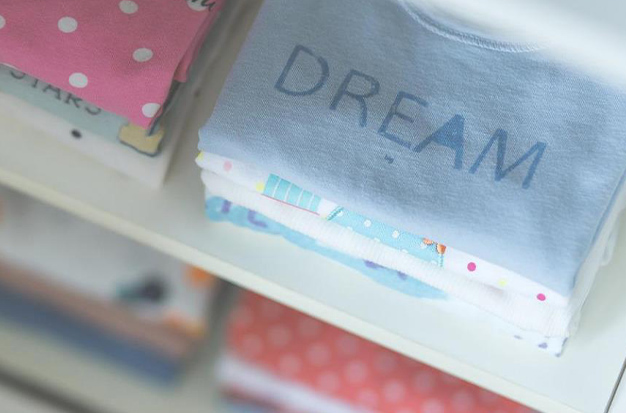The first step in providing for our children in the best way possible is to provide for our own needs. In this guide, let’s discuss mommy skincare and how to avoid retinol breastfeeding.
Can You Use Retinol While Breastfeeding?
Those who are nursing worry a lot about what they can and cannot put on their skin. Many of them fear toxic chemicals and how they will mix with their breast milk and affect their newborns’ skin and health. So, is it safe to use retinol while nursing?
Some substances, like retinol, are said to enter the baby’s bloodstream through breast milk. It’s crucial to keep in mind, though, that many substances are safe when used in appropriate dosages and situations.
Make sure skincare products don’t contain any ingredients that could harm your baby by reading labels carefully.
What is Retinol?
A type of vitamin A known as retinol is also referred to as vitamin A1 or beta-carotene. Many foods, beauty products, and even some medications contain retinol.
By promoting cell turnover, which evens out skin tone, lessens wrinkles, fades dark spots, and gives skin a smoother complexion, it is used in chemical peels, moisturizers, and wrinkle creams to reduce the visible signs of aging.
Because retinol has such potent anti-aging properties, it is frequently used to treat wrinkles, psoriasis, and persistent acne. The best ingredient for skincare, it can encourage skin regeneration.
There are many similarities between retinol and retinoids as skin care products, but there are also some significant differences. Both retinol and retinoids are derivatives of vitamin A.
Due to these similarities; many people think that retinol and retinoids are essentially the same things. This is untrue, though. Retinoids are more pure variations of retinol. To be used by the body, retinol needs to be transformed into retinoids.
In other words, for a retinol product to have the best effects on the skin, retinoids must be added. This is why retinol products are not as potent as retinoids. For people who want better results from their skincare regimen, retinoids are advised.
Why Should You Not Use Retinol While Breastfeeding?
Retinol is a common ingredient in skincare products intended to prevent aging, as you may already be aware. Although it is one of the most widely used skincare additives worldwide, it is best to exercise caution when using it while nursing.
A growing fetus or your nursing baby could be harmed by it, though it can reduce the appearance of wrinkles. Women who are nursing their infants shouldn’t use it.
Retinol can contaminate breast milk and enter the child, increasing the risk of vitamin A toxicity. If you have further inquiries about breastfeeding and your skincare regimen, you should always speak with your doctor.
What Skincare Ingredients to Avoid While Breastfeeding?
It’s critical to keep up with any changes to the ingredients in your skincare products. While there are many ingredients that are found naturally and are safe, some synthetic ingredients have been shown to be dangerous for lactating women.
It’s important to avoid ingredients that can be absorbed through the skin or transferred through breast milk, as parabens are hidden in almost everything, including skincare products.
Alcohol, scents, and essential oils are a few of these. In addition to these components, hormone-containing products should be avoided as they may affect your baby when they pass into your breast milk. It is best to avoid using an ingredient if it is not listed in the ingredients.
What Does Retinol Do to Babies?
Retinol is a form of vitamin A that is used in many beauty products. Products with retinol should not be used by women who are pregnant or nursing.
Babies are very sensitive to the chemicals that their moms are exposed to. Retinol can pass through the umbilical cord and affect the unborn child, leading to birth defects, if a woman is exposed to excessive amounts of it.
It can lead to serious birth defects that prevent a baby from ever being healthy and make them prone to numerous medical conditions. So it’s best to refrain from using retinol-containing products while pregnant.
How Soon After Pregnancy Can You Start Using Retinol?
One of the best products for skin care available is this one. It simultaneously tightens pores, removes dead skin cells, and moisturizes your skin. Knowing how soon you can resume using retinol after giving birth is crucial for these reasons.
You can start taking retinol once you’ve finished breastfeeding. Many women think their skin is drab and sagging.
Your skin begins to dry out as a result. Using retinol can help. You’ll feel fantastic about the way you look and your skin will become tighter as a result.
You may need to use the retinol less frequently if you use it less frequently because the skin is more sensitive during pregnancy.
Increase the frequency of application if you don’t notice a reaction, then do so until you do. After that, you should take a step back and give your body some time to recover.

Breastfeeding-safe Alternatives for Retinol
It can be challenging to choose a skincare product that you can use safely while breastfeeding, in particular.
Because of this, we did the research and identified some substitutes that are not only safe for skin while breastfeeding but also enhance the appearance of your skin.
The skin can be tightened, stretch marks and scars can be less obvious, redness can be diminished, and your skin can stay hydrated and healthy with the help of some of these ingredients. Discover which one is best for your skin by examining them for yourself!
Bakuchiol
The seeds and leaves of the babchi plant contain a chemical called bakuchiol. It is becoming more well-liked these days as a component in skin and breast care products.
Bakuchiol can lessen the damaging effects of UV rays on the skin and shield it from premature aging. It defends the skin from free radicals by working as a potent antioxidant.
There are a lot of plant extracts that claim to have skin-repairing properties, but only a few live up to their claims.
Being a non-toxic, non-irritating, natural, and holistic ingredient with skin-repairing properties is what makes bakuchiol such a great ingredient. It has been used in many different products, such as dietary supplements, lotions, lipstick, moisturizers, and more!
Azelaic Acid
Azelaic acid might be the answer if you’re bothered by an uneven skin tone. It has been demonstrated that azelaic acid can shrink large pores and lighten dark spots. It is also an exfoliant, which means that by removing the skin’s outermost layer of dead skin cells, it smoothes and rejuvenates the skin.
Azelaic acid is a relatively new acne treatment, but it’s been proven to be very effective. It’s best to get a topical cream with at least 20% azelaic acid.
This is crucial because it increases the medication’s effectiveness and potency as an acne treatment. Azelaic acid has been found to be among the safest options for breastfeeding women and is also safe during pregnancy.
Vitamin C
In addition, vitamin C is a secure substitute for nursing mothers. It is one of the most crucial nutrients that you should consume every day. It not only supports the health of your heart, but also of your skin! Here are some important benefits that Vitamin C can offer to clear and glowing skin:
- By increasing the synthesis of collagen, the protein from which your skin cells are made, it can lessen the appearance of acne scars.
- Encourage the development of keratin, elastin, and collagen in a healthy state.
- It can eliminate free radicals from your body.
- Your skin’s elasticity can be improved, which is necessary for maintaining firmness and health.
- It can lessen wrinkles and other aging symptoms.
Shea Butter
Vitamins, minerals, and antioxidants found in shea butter can give your skin a radiant and healthy glow. In place of the commercial products you’ve been using, it might be a fantastic alternative.
Shea butter is a lightweight natural product that is ideal for nursing mothers. It can be applied to both your body and your unborn child.
This keeps you feeling soft and helps with dry skin, lips, and other dry skin issues. There are a variety of brands of shea butter for breastfeeding moms, so make sure you choose one with quality control and the best ingredients!
Summary
Many people praise retinol as a great skincare ingredient for its capacity to keep skin looking young and clear of blemishes. Additionally, retinol lowers the risk of skin cancer and sunburn-related damage.
Retinol is an ingredient in many excellent skin care products, but there are some things to keep in mind before using this product.
Some women, particularly those who are pregnant or nursing, may experience severe side effects from the vitamin A form retinol. Given that it is known that retinol passes into breast milk, it is advisable to avoid it while nursing.
Your baby may experience adverse reactions from retinol, including swelling, redness, and skin irritation. Waiting until your child is weaned may be best if you are exclusively breastfeeding.
FAQs
Can I Use Vitamin C Serum While Breastfeeding
It is safe to take vitamin C while nursing, yes. The majority of prenatal and postnatal supplements, however, will completely meet your needs, so there’s typically no need to take an additional supplement.
Can I Use Hyaluronic Acid With Retinol While Breastfeeding
Ingredients like hyaluronic acid, lactic acid, azelaic acid, benzoyl peroxide, salicylic acid and glycolic acid are all considered safe to use during pregnancy and breastfeeding and have a similar plumping effect to retinol.



